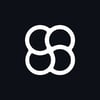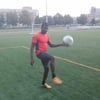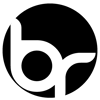This week I had my first interview for an entry level Full Stack Developer position.
I was nervous. I didn't think I was ready (imposter syndrome is real, and it sucks), I didn't sleep the night before,
and most importantly, I had no idea what to expect.
Of course, I had heard of the feared 'whiteboard challenges', the strange logic tests such as "How many building windows are there in Dallas?",
and in my mind I half expected to be sat in a small windowless room with a lamp swinging overhead.
When the first of two interviewers came down to greet me, we exchanged smiles and pleasantries, he walked me up to his office and requested that
I sit, and he simply asked me to tell him about myself. I don't remember much about what I said. I had no reason to be so terrified. I've been on stage
in front of hundreds of people in a wetsuit and divers goggles singing a solo before, so the trembling of my hands made no sense to me. In the end,
I chalked it up to the feeling of unpreparedness; I had never done this before, and my mind was racing through every worst scenario it could fathom.
But where I got tripped up wasn't where I expected.
I can build you a pretty decent website. I can Google-fu my way through just about any relatively difficult (for a junior dev) problem that
web development could throw at me. But the question that staggered me didn't deal with any of that. He asked:
"When you type Google.com into your web browser and hit enter, what happens?"
I froze. I realized that I had spent the last 8-9 months learning React, JavaScript, Ruby, Ruby on Rails, CSS, etc. But I never stopped to
study the basics.
I scrambled together an answer about how the MVC structure is set up, and using a GET request to retrieve information from a database.
Sure, that is sort of kind of half the answer. Still, it was clear that I didn't REALLY know the most basic function of the internet, and
from that moment in the interview, I decided that I would dedicate the coming disaster (okay it wasn't THAT bad, I gave competent answers
to the majority of the questions asked, but still) to making a mental list of my own shortcomings and use this experience to improve my future
interviews. In the end, I walked away with this knowledge:
Build your foundation
HTTP is the basic communication protocol used by the internet to send and receive requests. I won't explain everything I have since learned in
this blog post, but I absolutely suggest making sure you have the basics down pat before going into an interview for anything. That was my
mistake for focusing on becoming as advanced as possible in as little time as I could manage. Without a solid foundation, any building is destined
to fall.
Interview Practice is going to be important
This was my very first interview for a development position, and I really had no reason to believe that I was going to knock it out of
the park. My toolbelt is a little fuller now, and I received some great feedback on what is expected of me as a junior dev, and in turn, what
I should know going into interviews in the future.
Honesty is key
Halfway through the first interviewer, I realized that my rambling, jumbled explanations for things I was unsure about were absolutely doing
more harm than good. I found myself ending sentences with, "At least that's how I understand it," and that really isn't a comforting thing
for an interviewer to hear. The phrase 'I don't know' exists for a reason, and not only will it save you from looking like a rambling fool,
but it also opens you up to quickly follow with 'But I will definitely find out.' Show you are willing to fix your shortcomings instead of
trying to hide them with nonsense. Which leads to...
Ask how you can improve
My career mentor Mark armed me with a fantastic question to ask the interviewer at the end of the interview: "Is there anything that you feel
I could improve upon based on this interview?" it not only shows that you are open to criticism, but is the perfect time to build up that
mental list on what you need to research that night and try to become proficient in before your next interview. Take that advice and use it.
In the end, I feel like my first interview could have gone better, but really, it showed me a lot about where I need to make improvements. And you
can bet your butt I know how HTTP works now.
Good luck getting jobs out there, and happy coding!






Top comments (1)
I totally I agree with you on everything you mentioned especially about been honest.
If you don't know something,just tell the interviewer the truth.
I am currently going through a hiring process in a startup. Last week, I had a "compatibility check" call with the lead front end, and when he asks me about things I am not familiar with, I will answer with "I don't know, but I am a fast learner" — three days later, I received an email telling me that I should proceed to the next step.
I reckon it's better to be straight up than trying to answer something you don't know and end up embarrassing yourself.